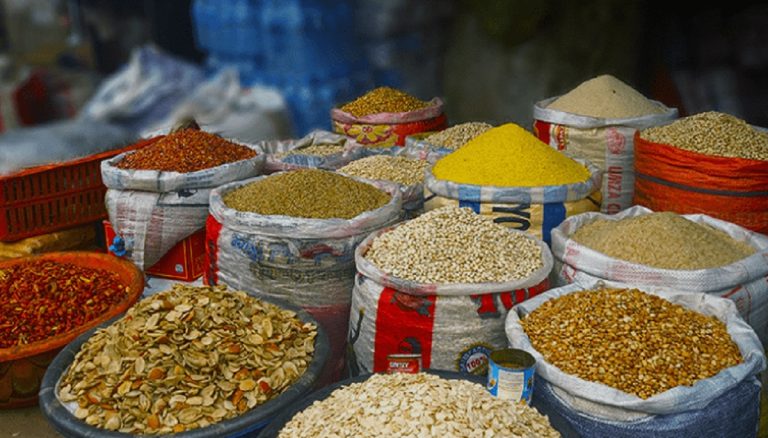In response to skyrocketing food prices, food consumers, traders, and farmers in Ibadan, Oyo State have raised concerns, urging the government at all levels to intervene promptly.
The respondents, interviewed on Friday, shared their experiences of how the high cost of food items is making life increasingly difficult.
Food consumers feel the pinch
A civil servant, Mrs. Bolaji Alabi, lamented that the cost of feeding a family of four has doubled in recent months, making it harder to afford basic meals.
She noted that the recent hike in the price of Premium Motor Spirit (PMS), commonly known as petrol, has further aggravated the situation, driving up food costs even more.
Housewife and petty trader, Mrs. Offiong Etem from Amuloko in Ona Ara Local Government Area, echoed similar sentiments, urging the government to act swiftly to ease the hardship faced by everyday Nigerians.
Food traders struggle with surging costs
Fish traders like Mrs. Ramot Akinade, who operates at Kola Eleja Depot in the Oke-Ado area, revealed that the price of fish has skyrocketed, making it more expensive than meat. She shared that the cost of purchasing fish has doubled recently, making it challenging for sellers to earn a profit.
Mr. Timothy Oyediran, another fish seller, highlighted the steep rise in the price of Titus fish, which jumped from ₦20,000 per carton in 2023 to ₦125,000.
He also noted similar increases in other varieties of fish, such as Kote, Sardine, and Panla, traditionally known as “poor man’s fish.”
Oyediran appealed for government intervention to stabilize prices and reduce the burden on consumers and traders alike.
Farmers seek support for agriculture
Farmers are not spared from the challenges posed by rising food prices.
A farmer and zonal sales representative of an oil and gas company, Jimi Oteyowo, called on the government to prioritize agricultural production, particularly food crops, to address food insecurity.
He also urged farmers to minimize post-harvest losses to avoid further price hikes.
Another farmer, Mr. Emmanuel Dosu, pointed out that high fuel costs and expensive farm inputs, such as chemicals, are driving up the prices of farm produce.
Dosu emphasized the need for the government to enhance storage infrastructure during the harvest season to ensure a stable supply of food throughout the year.
Consumers resort to reducing quality and quantity of food
In light of the rising food prices, consumers have had to make difficult adjustments to their diets.
Retired teacher Mrs. Foluke Akinpelu explained that her family has reduced both the quantity and quality of food they consume to manage costs.
She mentioned that her household has stopped buying certain staples, such as beans, and has cut down on the frequency of meals to stretch their budget.
Akinpelu, who also engages in backyard farming, suggested that the government increase budgetary allocations to the agriculture sector and support small-scale farmers to ensure food security and curb the rising cost of food.
She also called for policies to promote small businesses, which could help alleviate hunger and stimulate economic growth.
Market prices continue to soar
At Bodija International Market, traders like Mr. John Ike reported a significant surge in the prices of essential food items.
For example, a 25-kilogram container of King’s vegetable oil now sells for ₦58,000, up from ₦35,000, while a small bottle costs ₦1,800.
The price of a bag of rice has also risen to ₦76,000 from ₦45,000 in 2023, and the price of garri has more than doubled.
As food prices continue to rise, Nigerians are feeling the strain, and many are calling on the government to act swiftly to address the situation.
The respondents unanimously appealed for interventions aimed at stabilizing prices, boosting agricultural production, and improving food security.
Without urgent action, many fear that hunger and poverty will continue to worsen across the country.
NAN


